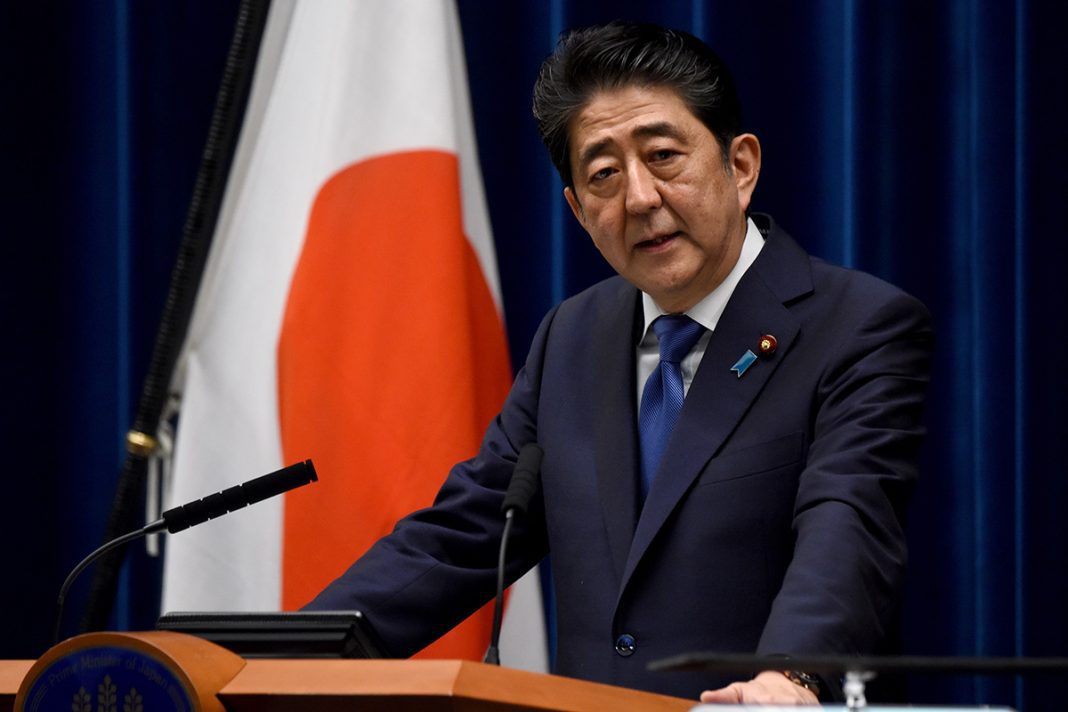Exit polls indicate that Shinzo Abe has won a landslide victory in Sunday’s snap polls. The Japanese government coalition led by his Liberal Democratic Party swooped 312 seats, allowing it to retain a two thirds “super-majority” in the Japanese Diet.
The main item on Abe’s agenda – now that he has a firm control of the parliament – is amending Article 9 of Japan’s pacifist constitution. The article, which has largely shaped the country’s postwar identity calls for the renunciation of “war as a sovereign right of the nation and the threat or use of force as means of settling international disputes.”
The issue of Japan’s remilitarisation is a domestically divisive one. On one hand, pacifists don’t wish to see Japan revert to its belligerent past. On the other, there are those who think Japan should have a right – as do other sovereign nations – to maintain a military especially in the face of recent threats from North Korea.
Remilitarising Japan by 2020
Japan currently maintains a pseudo-army – the Japanese Self Defense Forces (JSDF) which it argues is for “self-defence” against enemy threats, hence not a violation of the constitution.
However, the forces are constitutionally limiting as Article 9 clearly stipulates that “land, sea and air forces, as well as other war potential will never be maintained.”
Japan’s current annual military budget is the biggest yet for the country at 43.6 billion dollars, up 1.4 percent from last year. It is the fifth consecutive increase and is as Abe seeks a revision of the constitution by 2020 which would see Japan move away from its current pacifist posture.
In 2015, Abe’s administration successfully passed legislation to allow the SDF to participate in foreign conflicts. As such, the constitution was reinterpreted so that the military could operate abroad under the guise of “collective self defence” for allies. But its passage did not come without heavy opposition which saw Abe’s ratings plummet and blows exchanged by Japanese parliamentarians when as the bill was tabled on the parliament floor.
Effect of a remilitarised Japan on the region
A remilitarised Japan would have a palpable impact on East Asian security given the current concert of geopolitical factors at play.
ASEAN member states can stand to gain from this situation as it would open up new avenues for defence diplomacy and military engagements. Japan already has several military pacts with countries like the Philippines and Vietnam – whom are both claimant countries in the South China Sea dispute. Japan is also currently drafting a legal framework for defence cooperation with Thailand which would allow for future military equipment and technology transfer between both countries.
Japan’s already increasing military cooperation with ASEAN member states especially those embroiled in the South China Sea dispute will likely raise Chinese eyebrows. Japan has also heavily invested in amphibious military assets as it faces China in its own maritime claims in Northeast Asia.
Japan’s immediate threat in the East Asian neighbourhood is North Korea which will likely continue its provocative actions in the event of Japanese remilitarisation. Here, the symbolic effect of a Japanese army as opposed to merely a “self defence force” will likely shift the underlying tone of Japanese reaction to any future North Korean action.
Thomas Benjamin Daniel, an Analyst in the Foreign Policy and Security Studies Programme attached with ISIS (Institute of Strategic and International Studies) Malaysia opines that such actions are an indication of Abe wanting to portray Japan as a much stronger and serious actor vis-à-vis East Asian security.
“Abe’s actions will be intended to show Japan’s neighbours that it is serious about using military force to defend itself should it be in critical danger of being attacked. Besides that, it is also to demonstrate to the US that Japan is willing to step up and shoulder more of the burden of self-defence, and that of defending its ally as a modern and capable nation state,” he told The ASEAN Post in an email interview.
Abe’s ambitions to see Japan remilitarised is one he held for a long time and cost him a significant amount of political capital. However, any amendment to the constitution would require a referendum to be called. Thus far, Abe has passed the first hurdle – the legislative hurdle. If he manages to win the hearts and minds of the Japanese, we can very likely see a standing Japanese army before the 2020 Tokyo Olympic Games.
This article first appeared in The Asean Post on 23 October 2017





